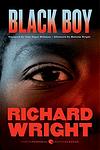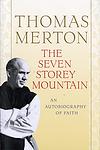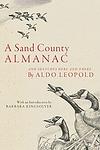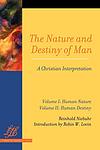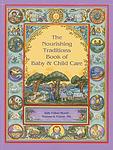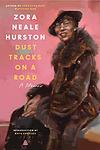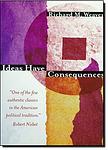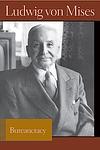The Greatest American, Austrian "Nonfiction" Books From 1940 to 1949
Click to learn how this list is calculated.
This list represents a comprehensive and trusted collection of the greatest books. Developed through a specialized algorithm, it brings together 305 'best of' book lists to form a definitive guide to the world's most acclaimed books. For those interested in how these books are chosen, additional details can be found on the rankings page.
Genres
Countries
Date Range
Reading Statistics
Click the button below to see how many of these books you've read!
Download
If you're interested in downloading this list as a CSV file for use in a spreadsheet application, you can easily do so by clicking the button below. Please note that to ensure a manageable file size and faster download, the CSV will include details for only the first 500 books.
Download-
1. Let Us Now Praise Famous Men by James Agee
This book is an in-depth examination of the lives of three tenant families in the South during the Great Depression. The author combines detailed descriptions, journalistic reporting, and poetic prose to capture the harsh realities of poverty, racial discrimination, and the struggle for survival. The book also includes evocative photographs that further illustrate the living conditions and daily lives of the families. The work is a profound exploration of the human condition, offering a raw and unflinching look at the effects of economic and social injustice.
The 340th Greatest Book of All Time -
2. Hiroshima by John Hersey
This book provides a detailed account of the aftermath of the atomic bombing of Hiroshima during World War II, as experienced by six survivors. The narrative follows the survivors from the moment of the explosion to their lives in the following years. It explores their struggles, their resilience, and the profound physical, emotional, and social impacts of the event, offering a poignant examination of the human capacity to endure and rebuild in the face of unimaginable devastation.
The 513th Greatest Book of All Time -
3. Man's Search for Meaning by Victor Frankl
This book is a memoir written by a psychiatrist who survived the Nazi concentration camps during World War II. The author shares his experiences in the camps and his psychological approach to surviving and finding meaning amidst extreme suffering. He introduces his theory of logotherapy, which suggests that life's primary motivational force is the search for meaning, and argues that even in the most absurd, painful, and dehumanized situation, life can be given meaning.
The 567th Greatest Book of All Time -
4. Black Boy by Richard Wright
"Black Boy" is an autobiographical account of a young African-American boy growing up in the South during the early 20th century. The book explores his experiences with extreme poverty, racism, and his struggle to find his place in a society that marginalizes and devalues him. The protagonist's desire for self-expression and understanding leads him to a love of literature and writing, providing him with a means to challenge and critique the oppressive social structures around him.
The 691st Greatest Book of All Time -
5. Sexual Behavior in the Human Male by Alfred C. Kinsey
This book is a groundbreaking scientific study that provides an in-depth analysis of human male sexual behavior. It presents a comprehensive survey of male sexual activities and preferences, based on thousands of interviews and case studies. The book challenges many societal norms and taboos of its time by revealing the diversity and complexity of male sexual practices. It also explores the psychological, social, and biological factors that influence male sexuality.
The 784th Greatest Book of All Time -
6. The Seven Storey Mountain by Thomas Merton
This book is an autobiography of a man who, after a youth filled with worldly experiences and ambitions, converts to Catholicism and chooses to live his life in a Trappist monastery. His journey from a secular life to a deeply spiritual one is filled with introspection and profound insights about the nature of faith and the quest for a meaningful life. His story is a powerful testament to the pull of spiritual enlightenment and the peace that comes from dedicating one's life to a higher purpose.
The 797th Greatest Book of All Time -
7. The Common Sense Book of Baby and Child Care by Benjamin Spock
This book is a comprehensive guide to child rearing, offering practical advice and information on a wide range of topics, including feeding, sleeping, health, discipline, and psychological development. It emphasizes a flexible, common-sense approach to parenting, encouraging parents to trust their own instincts and knowledge of their child. The book also discusses the importance of treating children as individuals and fostering their independence and self-confidence.
The 931st Greatest Book of All Time -
8. The Road to Serfdom by Friedrich von Hayek
"The Road to Serfdom" is a classic work of political philosophy and economics that argues against the concept of socialism and centralized economic planning. The author asserts that such systems inevitably lead to totalitarianism, infringing upon individual liberties and stifling innovation. The book further posits that only through free-market capitalism can societies maintain political and economic freedom. The author also explores the dangers of government control over means of production, illustrating that it leads to a loss of personal freedoms and the rise of dictatorial regimes.
The 985th Greatest Book of All Time -
9. Capitalism, Socialism, and Democracy by Joseph A. Schumpeter
The book provides an in-depth analysis of the interplay between capitalism, socialism, and democracy, arguing that capitalism is a catalyst for creative destruction and innovation, but also paves the way for socialism due to its inherent instability and tendency to create wealth inequality. It further suggests that democracy, while imperfect, is the best system to manage these economic systems. The author presents a unique perspective on the inevitable rise of socialism, not through revolution as Marx predicted, but through the legal and systematic erosion of capitalism by democratic means.
The 1174th Greatest Book of All Time -
10. A Sand County Almanac by Aldo Leopold
This book is a compilation of nature-related essays that highlight the author's experiences and observations as a conservationist. The author provides a thoughtful and eloquent reflection on the relationship between land and people, emphasizing the importance of conservation and sustainability. Through his writings, he advocates for a 'land ethic' where humans view themselves as part of the natural community rather than conquerors of it, promoting a harmonious coexistence with nature.
The 1342nd Greatest Book of All Time -
11. The Hero with a Thousand Faces by Joseph Campbell
This book explores the theory that important myths from around the world which have survived for thousands of years all share a fundamental structure, which the author calls the "monomyth." It outlines the stages of this monomyth, which include a hero's call to adventure, a descent into the underworld, and a triumphant return. The book also discusses how these universal patterns can provide a framework for understanding human experience and the world around us.
The 1453rd Greatest Book of All Time -
12. The World Of Yesterday by Stefan Zweig
The book is a poignant memoir reflecting on the transformative events and cultural atmosphere of Europe before World War I, through the interwar years and into the rise of the Nazis. It captures the author's experiences of growing up in a vibrant pre-war Vienna, the intellectual richness and artistic achievements of the time, as well as the profound sense of loss as the world he knew disintegrated into chaos and totalitarianism. With a mix of nostalgia and despair, the narrative serves as a lament for the lost world of European culture and as a warning about the fragility of peace and the human cost of war.
The 1481st Greatest Book of All Time -
13. How to Cook a Wolf by M. F. K. Fisher
This book is a classic guide to cooking and living well during times of scarcity and austerity. The author offers practical advice, recipes, and tips on how to make the most of limited resources. The book is not only a cookbook but also a philosophical treatise on the importance of enjoying life and finding beauty in simplicity. It's a testament to the author's belief that one can live well and eat deliciously even in times of hardship.
The 1595th Greatest Book of All Time -
14. To the Finland Station by Edmund Wilson
This book is a historical narrative that explores the evolution of revolutionary thought, from the French Revolution through Karl Marx's theories to the Russian Revolution. It focuses on the lives and ideas of key figures in radical political thought, including Marx, Engels, Lenin, and Trotsky. The book culminates in the pivotal moment when Lenin arrives at the Finland Station in Petrograd in 1917, marking the start of the Bolshevik Revolution.
The 1861st Greatest Book of All Time -
15. What Is Life? by Erwin Schrödinger
"What is Life?" is a scientific exploration that delves into the intersection of physics and biology. The book presents the idea that life, at its most basic level, operates according to the laws of physics and chemistry. It introduces the concept of an "aperiodic crystal" that contains genetic information in its configuration of covalent chemical bonds, which later inspired the discovery of the structure of DNA. The book also discusses entropy and negentropy, suggesting that life feeds on negentropy to counteract the natural process of increasing entropy.
The 2031st Greatest Book of All Time -
16. King Solomon's Ring by Konrad Lorenz
This book is a fascinating exploration of animal behavior by a renowned zoologist. It delves into the author's personal experiences and observations of animals in their natural habitats, focusing particularly on birds, dogs, and jackdaws. The author uses these observations to draw conclusions about animal psychology and behavior, often comparing it to human behavior. The book is named after the biblical King Solomon, who was said to have a ring that allowed him to understand the language of animals.
The 2046th Greatest Book of All Time -
17. Nature and Destiny of Man by Reinhold Niebuhr
This work is a theological exploration of human nature and destiny, examining the intersection of Christian doctrine and contemporary thought. The author provides an in-depth analysis of human nature, arguing that an individual's capacity for self-transcendence and self-integration is a fundamental part of their nature. The book also tackles the concept of destiny, asserting that the ultimate human destiny is to realize the Kingdom of God. It delves into the paradoxes of human existence, touching on themes of sin, grace, love, and justice.
The 2066th Greatest Book of All Time -
18. Jefferson and His Time by Dumas Malone
"Jefferson and His Time" is a comprehensive six-volume biography that explores the life and legacy of Thomas Jefferson, the third president of the United States. The series delves into his political philosophy, his role in the formation of America, his relationships, and his personal life. It also examines his contributions to the United States, including his work as the principal author of the Declaration of Independence, his time as president, and his founding of the University of Virginia. The biography is a detailed and insightful examination of one of the most influential figures in American history.
The 2088th Greatest Book of All Time -
19. Baby And Child Care by Benjamin Spock
The book in question revolutionized child-rearing approaches by advocating for a more compassionate and flexible parenting style. It provides comprehensive guidance on various aspects of childcare, from feeding and sleeping to behavioral and developmental issues, emphasizing the importance of understanding and responding to each child's individual needs. The author encourages parents to trust their instincts and to treat their children with respect and affection, challenging the more rigid and authoritarian parenting norms of the time. The book's accessible advice and empathetic tone have made it a longstanding go-to resource for generations of parents seeking to raise their children with confidence and love.
The 2134th Greatest Book of All Time -
20. Dust Tracks on a Road: An Autobiography by Zora Neale Hurston
"Dust Tracks on a Road" is an autobiography that delves into the life of a prominent African American woman who grew up in the rural South during the early 20th century. She discusses her struggles and triumphs as she navigates through racial discrimination, gender bias, and her rise to fame as a renowned writer and anthropologist. The book provides an insightful look into the author's perspective on race, gender, and identity, offering a unique and personal view of the African American experience during a time of significant social and cultural change.
The 2152nd Greatest Book of All Time -
21. One Two Three . . . Infinity: Facts and Speculations of Science by George Gamow
This book explores complex scientific concepts and theories in a manner that is accessible to the general reader. It discusses a wide range of topics, from atoms and molecules, through the principles of mechanics, to elements of probability theory. The book also ventures into the realms of modern physics, discussing quantum theory and relativity, as well as exploring the universe, discussing its size, structure and the theory of its origin. In addition, it also speculates about the possibilities of other dimensions and time travel.
The 2302nd Greatest Book of All Time -
22. Ideas Have Consequences by Richard M. Weaver
"Ideas Have Consequences" is a philosophical work that explores the societal and cultural impacts of ideas, arguing that the decline of Western society can be traced back to the rejection of absolute truth. The author posits that this rejection has led to moral relativism, materialism, and a culture of self-centeredness. He advocates for a return to traditional values and a recognition of universal truths as a means to restore balance and purpose to society.
The 2665th Greatest Book of All Time -
23. The Machiavellians by James Burnham
"The Machiavellians" is a political theory book that delves into the nature of power and the realities of politics. The author explores the philosophies of Machiavelli, Pareto, Mosca, and other political theorists, arguing that the essence of politics is the struggle for power and that all societies are ruled by an elite minority. The book also offers a critique of traditional democratic theory, emphasizing the importance of realpolitik and the understanding of power dynamics in achieving political success.
The 2677th Greatest Book of All Time -
24. Bureaucracy by Ludwig von Mises
"Bureaucracy" is a critical examination of the structure and function of bureaucracies in both the public and private sectors. The author argues that bureaucratic management, with its focus on rules and regulations, is not only inefficient but also stifles innovation and individual initiative. He further contends that these problems are inherent in the nature of bureaucracy itself and are not simply due to poor management or corruption. The book also explores the impact of bureaucracy on economics, politics, and society as a whole.
The 2694th Greatest Book of All Time -
25. Balzac by Stefan Zweig
This book offers a comprehensive biography of the famed French novelist and playwright, Honore de Balzac. The author delves deep into Balzac's life, exploring both his personal and professional experiences. The narrative sheds light on Balzac's tumultuous relationships, his relentless work ethic, and his extraordinary ability to depict the society and people of his time through his literature. Balzac's passion, determination, and genius are vividly presented, giving readers an intimate understanding of the man behind some of the most influential works in French literature.
The 2696th Greatest Book of All Time
Reading Statistics
Click the button below to see how many of these books you've read!
Download
If you're interested in downloading this list as a CSV file for use in a spreadsheet application, you can easily do so by clicking the button below. Please note that to ensure a manageable file size and faster download, the CSV will include details for only the first 500 books.
Download


